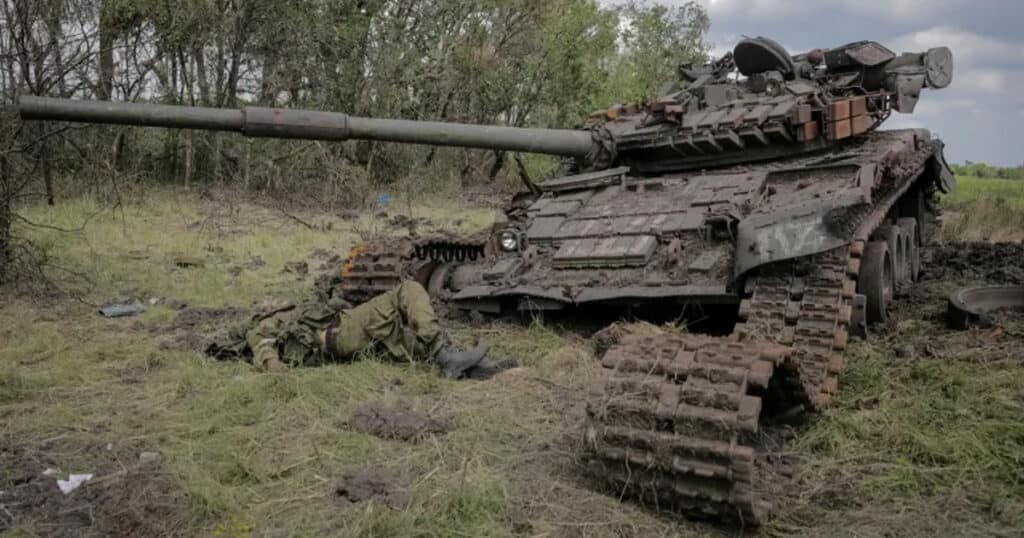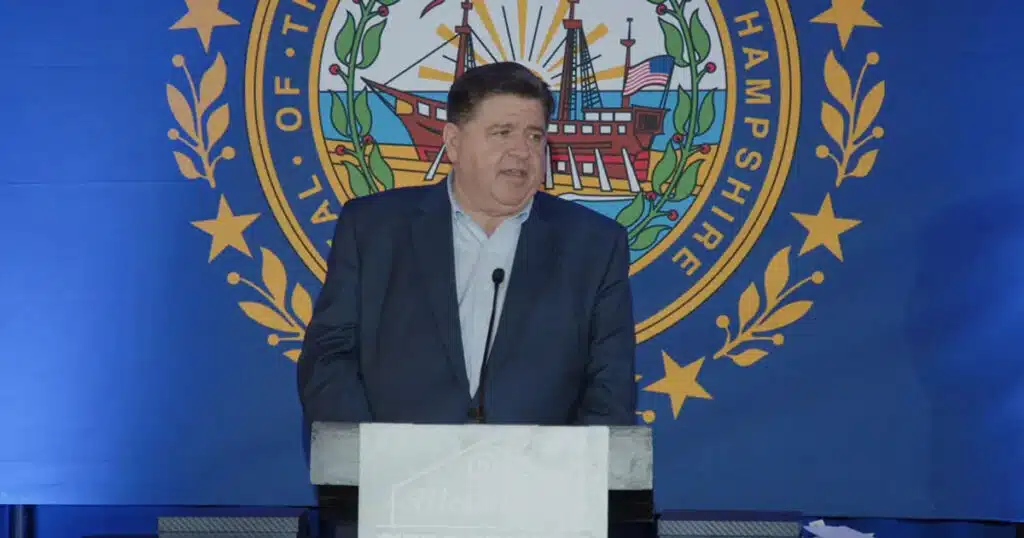
How Trump Can Win in Ukraine
Mario Cuomo famously observed that you campaign in poetry but govern in prose. There is no reason to suppose the incoming Trump Administration will be different in this respect. Events, personalities, and facts, as much, if not more than, rhetoric, will likely drive its policies. This observation pertains as much to Ukraine policy as to all other policy domains. So, despite his campaign rhetoric President Trump can succeed on Ukraine not by giving Russia a victory camouflaged by negotiations but rather by using American power to force Russia to negotiate with Ukraine or even to obtain a victory for Kyiv. Indeed, despite much commentary that Ukraine cannot win, in fact Russia’s domestic situation is considerably worse than is reported and Russian media reveals a deep and arguably growing elite discontent. Although Trump has said he could make peace between Russia and Ukraine in 24 hours; this is clearly an exaggeration. And while incoming Vice-President Vance stated that he does not care about Ukraine; an objective look at the facts, including those pertaining to Russian domestic factors, should convince him and President Trump to realize that they have it within their power to achieve a victory for the United States and thus themselves that increases their support by supporting Ukraine.
To do so they need to look at the current facts of the case not campaign rhetoric. Due to the insertion of north Korean troops and Russia’s dependence on North Korean artillery, Iranian drones and missiles, and Chinese exports of dual-use technology this war has assumed global reverberations. Therefore, whatever Washington does will have serious, even critical, ramifications for its Asian policies — the likely priority of a Trump Administration – and Middle Eastern policies. For these reasons, Trump’s policy moves will go beyond affecting Ukrainian and European security. Indeed, this much is obvious. More importantly, the second consequence of Russia’s dependence on foreign governments is that it confers upon the United States an enormous opportunity to deploy, with its allies, its superior economic and military capability either to bring Russia to the table or more preferably, help Ukraine achieve victory. Victory for Ukraine entails restoration of its territorial integrity, and guarantees of its full sovereignty, including the right to join NATO and the EU, and, if possible, the institution of reparations and war crimes trials.
Third, in this context, defeating Russia supports many key goals of the incoming administration regarding China, Korea, energy, and European security. Therefore, supporting Ukraine rather than abandoning it is the surest way for Trump and his team to realize their agenda, enhance the U.S. position, and thus gain success for him and his administration. Trump and his team must realize that once they assume power Ukraine becomes their responsibility for good or bad. A negotiated settlement that gives Putin much if not all of what he wants will redound negatively upon Trump not the Democrats. That is because this outcome gives aggressors across the globe: China, Iran, North Korea, and, of course, Russia, a green light to keep challenging international order because a Western defeat in Ukraine will validate a key concept of their thinking. That concept is that a U.S. in decline has neither the will not capability to defend its claims to unilateral domination at their expense that they frequently invoke. Therefore, convinced of the rightness of their policies, they will push harder and provoke more conflicts and crises everywhere.
For this reason, Washington must duly support a Ukrainian victory for only that will force Putin to negotiate. Victory or coercing Moscow into negotiating with a sovereign Ukraine represent victories for the U.S. and thus for President Trump. Conversely, a negotiation over Ukraine’s head replicates the Munich precedent, undermines Ukraine’s survivability, will likely confirm Russian possession of Ukrainian territory, erode European security, and highlight U.S weakness. As a result, NATO will be demoralized thereby enhancing Putin’s chances to disaggregate Europe and even intensify the war he is now waging against the U.S. and its European allies. This war features attacks on civilian infrastructure in Europe, attempts to blow up civilian airliners travelling to the U.S., bomb scares at American polling places, attacks on critical infrastructures, assassinations across Europe, cyber strikes, information war, and hacking of key administration personnel.
More importantly a settlement giving Putin most, if not all of what he wants will rightly be seen here and abroad as exposing Trump’s weakness and ignorance of the stakes in Europe or elsewhere and thus diminish his domestic and foreign support at a crucial time when new attacks are likely. Conversely a policy that supports Ukraine and leads it to victory is the only one that will force Russia to stop its war against Ukraine and Europe and make China think twice about the desirability of so reckless yet improvident and incapable an ally as Russia, hesitate to attack Taiwan because it can see what the negative consequences of that are. A Western victory will also restrain North Korea, who will have bet on the wrong horse and must now pay the price because a postwar Russia cannot and will not help it. Iran too will have to reconsider the value of its alignment with Russia and China because Hamas and Hezbollah will be in ruins or at least gravely injured, and the Houthi exposed to the full scope of Western power. Iran too will have been shown to be vulnerable even defenseless to an Israeli or combined U.S.-Israeli retaliation to any strikes made by it or its proxies.
The Means to the End
The foregoing represents the likely consequences and implications of a U.S.-led victory. The means for achieving these outcomes are also at hand for the Trump Administration. First, it needs to allow Ukraine to obtain the weapons, missiles, air defenses, etc. it needs to continue to thwart Russian attacks. Ukraine has shown that it can even attack Moscow successfully, but it needs the quantity and air defenses that U.S. and Western weapons can give it. Russia’s casualty rates are also insupportable, yet Putin dare not call for a general mobilization. Indeed, all his personnel moves to date, e.g. recruiting North Koreans, betrays his understanding that general mobilization is deeply unpopular. His economy is reeling while any serious reader of Russian media can see that discontent and alarm are rising and being expressed publicly among the elite. Therefore, serious Western moves to bolster Ukraine can and should exacerbate all these growing weaknesses of the Russian military and government. Here we should remember that every major war in Russian history has put the existing regime to its most serious test and this one is no exception.
Equally important, regenerating U. S. defense production lines for Kyiv facilitates the necessary renovation of our defense industrial sector. Several bipartisan commissions have recently concluded that that U.S. must modernize and recapitalize its conventional and nuclear capabilities to meet the threats posed by Russia, China, Iran, and North Korea. The necessity of helping Ukraine provides both the opportunity and motive for doing so. By the same token the new administration can and must pressure European defense industries to get their act together by reforming, modernizing, and producing the weapons with which they can defend themselves and support Ukraine so that they can meet the NATO targets to which they are pledged and enhance their own capabilities. In turn that development will allow the U.S. to concentrate more fully against China and to a lesser degree North Korea, a process that fully corresponds to the new administration’s priorities.
In this context the second thing the Administration should do is to extend existing sanctions and impose new ones to shut down Russia’s energy trade abroad. It already is clear that even adversaries like China do not wish to run afoul of U.S. sanctions on their banks and key economic-financial institutions. Tightening those reins and decisively crippling Russia’s energy exports and thus state revenues will have a huge impact on the Russian economy and its ability to sustain its war machine, not to mention its “alliances’. Imposing these sanctions will also offer U. S. energy companies new markets abroad and encourage the drilling that Trump and his administration have already pledged to support so that American firms take market share away from Russia. This policy also has knock on effects abroad, e.g. in the Balkans, because it will deprive Russia of the energy-derived revenues it gains in that area thanks to its strong and unchallenged position there. Since those revenues undergird Moscow’s political warfare in the Balkans and constant efforts to subvert local governments, tighter energy sanctions will greatly weaken Russia’s campaign to roll back Balkan integration with Europe.
Third, Washington must support direct negotiations between Kyiv and Moscow and not act in Kyiv’s place as Great Britain and France did regarding Czechoslovakia at Munich. Washington may participate in negotiations and the preparatory diplomacy for them. But it cannot substitute for Kyiv and thereby undermine its sovereignty. Although Putin has said that Trump’s ideas “merit attention” he has shown no willingness to negotiate. Nor have his objectives of destroying Ukraine’s sovereignty, state identity, and territory and with that the U.S. led European order changed. As we have noted, Russia remains at war with the West. Any success in realizing its objectives in Ukraine can only expand and further globalize that war. Indeed, Russian sources are now trying to inveigle Poland and Hungary to join it in a partition of Ukraine. Thus, the support we give to Ukraine towards victory also frustrates Putin’s efforts to erase Ukraine as a state from the map and places Kyiv in a stronger, more equal negotiating position.
Fourth, the Trump Administration must make clear to Putin that his nuclear threats are unavailing both operationally and strategically. Soviet experiments long ago showed that troops cannot advance through a nuclear battlefield, thus negating the operational advantages of such use. But at the strategic level Trump and his team must make clear to those in Moscow who wish to invoke or even deploy the nuclear threat that if they do so it will be the last thing they ever do. Much like Clint Eastwood’s Dirty Harry in the eponymous film, they must make graphically clear to Putin just what risks he is running by his nuclear threats and that they are unacceptable to Moscow. Doing so will enhance the resolve of the West to support Ukraine and should make clear to Russian leaders that their position in this war of continuing aggression is equally untenable.
Fifth, in coincidence with these moves, Washington and its allies should join together to expose, frustrate, and prevent, Putin’s current non-kinetic cyber, informational, criminal, and threatening global war. Here we should take the information war to Russia as we have not done and saturate its media with the truth about Putin, what he and his colleagues have done to Russia, and this war. Moreover, weapons support to Ukraine, coupled with its astonishing inventiveness permits it to bring this war home to Russians and underscore the costs of this war to them, thereby arousing more domestic discontent.
Conclusions
The success of this strategy not only enhances the Administration’s domestic and foreign standing. Apart from defeating Russia it thwarts Chinese designs on Taiwan, threatens China’s economy, checks North Korean and Iranian ambitions, expands energy production and market share abroad, increases the U.S’ security and defense capabilities, and allows for a reorientation of a strengthened U.S.’ priorities to China and Asia without abandoning Europe while simultaneously reinvigorating European capabilities.
The incoming team must grasp that upon Trump’s assuming office Ukraine becomes his problem and he with his team will be held accountable here and abroad for what they do to resolve it. Second, the new administration has a unique opportunity to formulate and then execute a strategy that gives Ukraine and Europe the security they need, weakens or ends the Russian threat to Europe for a long time, constrains China, Iran, and North Korea, and fulfills many of President Trump’s stated his policy goals. This strategy can give him the winning aura and popularity he craves while actually enhancing the U.S.’ power and the chance for peace and security abroad.
The policy, besetting vice of the Biden Administration’s policy towards Ukraine was that for all of its merits there was no strategy. This article outlines what a winning strategy for the Trump Administration might look like and the benefits that would then accrue to it if it can formulate and then execute this strategy. On the other hand, should it fail to act strategically it will, like its predecessor lose support here and abroad with President Trump then being held accountable for failure and defeat. While Ukraine might have to then pay an even larger price for its survival or loss thereof; it is quite unlikely that the new president and his administration wish to be held responsible for the ensuing calamities that will then inevitably attack us from all sides.
Dr. Stephen J. Blank is a Senior Fellow at Foreign Policy Research Institute. He is an internationally renowned expert on Russian and Chinese defense policy. He is the author of “Light from the East: Russia’s Quest for Great Power Status in Asia” (Taylor & Francis, 2023). He was a Professor of National Security Studies at the Strategic Studies Institute of the U.S. Army War College.
This article was originally published by RealClearDefense and made available via RealClearWire.



